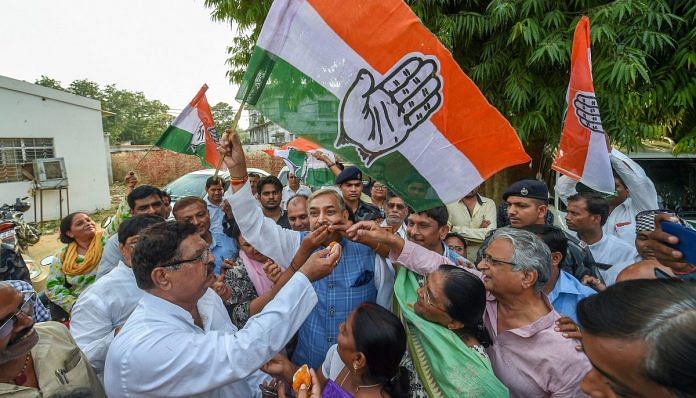With national elections now less than a year away, the Karnataka episode reveals Modi’s position atop India’s politics is less secure than it was just a few days ago.
As a politician, Indian Prime Minister Narendra Modi is distinguished by his relentlessness. Every vote, every constituency, every election matters. Modi has built his Bharatiya Janata Party into an electoral juggernaut that runs 21 of India’s 29 states; 70 per cent of India’s population is ruled by the BJP at both the state and the federal level.
In some of these states, such as the vast northern territory of Uttar Pradesh, the party swept elections on its own. In others, such as U.P.’s struggling neighbor Bihar, the BJP stole away one member of the ruling coalition in order to seize power for itself. In yet others, such as the coastal state of Goa, the opposition Congress Party in fact did better than the BJP in the elections only to discover that Modi’s lieutenants were far more skillful alliance-builders.
Last weekend, in the southern state of Karnataka – home to India’s IT capital, Bangalore -Modi discovered the limits of this strategy. Karnataka was the last major state ruled by Congress; after a bruising election campaign, the BJP ended up winning more seats in the state assembly, though not quite enough to form an outright majority.
That’s when things began to go wrong. Congress, contrary to expectations, did not roll up and play dead. It swiftly organized a coalition with a smaller regional party to form a majority in the assembly – and announced that it would claim power for itself.
What ensued was both tragic and comic. Tragic, because the BJP’s subsequent actions showed how easily India’s institutions could be subverted with enough effort. Comic, because – well, the attempted subversion was so unabashed that one had to laugh.
First the governor of the state – its titular head, appointed by the federal government -decided the BJP’s leader would be sworn in as chief minister, although he didn’t have the numbers. This was, most supposed, not unrelated to the fact that the governor was an old party colleague of Modi’s from his home state of Gujarat. And once the new BJP chief minister took over, and was given a fortnight to prove he had a majority in the assembly, a game of hide-and-seek played out – on national television and in deadly earnest.
In India, party leaders seeking to insulate their legislators from temptation tend to try and make them disappear, ideally in a nice five-star resort somewhere with only one access road and poor mobile phone reception. This is so predictable that the tourism department of the neighboring state of Kerala even tweeted an invitation to non-BJP legislators to the “safe and beautiful resorts of God’s Own Country.”
Congress instead chose to sequester its legislators in a Bangalore hotel, while the BJP attempted to convert them using threats and bribes, according to various conversations taped by those on the receiving end. Then the new BJP chief minister, within a few hours of being appointed, transferred in a new police chief for the area. He promptly removed the security cordon around the hotel.
The Congress and its ally then tried to move its politicians across the border to states that weren’t ruled by the BJP, only to discover that the aviation authorities – controlled by the BJP government in New Delhi – refused permission for the planes they’d chartered to take off. Even by the rough-and-tumble standards of Indian politics, this was brazen.
What was truly significant, though, was the fact that legislators loyal to Congress and its allies held firm, in spite of apparent offers to “increase your wealth 100 times.” In fact, the very openness of such attempts to subvert the constitutional process may have strengthened the legislators’ resolve. Eventually, Modi’s nominee for the state’s chief minister was forced to resign after just 55 hours, to be replaced by the leader of the regional party.
A determined and desperate opposition, such as was on display in Karnataka, isn’t good news for Modi. The prime minister remains by far the most popular politician in India today and his party is a formidable election-winning machine. It has much more money and is far better organized than its rivals.
But, with national elections now less than a year away, the Karnataka episode reveals what Modi should most fear. Even in his extraordinary performance in the 2014 elections, in which the BJP was the first party in 30 years to win a parliamentary majority, he took home only 31 per cent of the vote. A united and motivated opposition could still defeat him. His position atop India’s complicated politics looks quite a bit less secure than it did just a few days ago. – Bloomberg




If aMLA has no independent thought to give in assembly as he belongs to a political party , I think only the party representative make decisions in recent Karnatak like issue,
A desperate opposition is a good news. A desperate opposition without a cause other than regaining power is not a good opposition.
When UPA was voted out inflation was high. Prices of commodities were going up every day. Fiscal deficit of the country was very high, which caused the price rise.
Compare that to low inflation now. Even if oil price goes up, government can cut down the excise a bit and lower the price to tackle inflation. Increase in deficit and inflation will not take effect for a while. It won’t have impact on the election. Same time monsoon will be good this year. It will have a positive impact on the agriculture and positive effect on the results.
Determined opposition does not have a real cause to join hands to vote out a government. Desperate joining hands to gain power will fail.